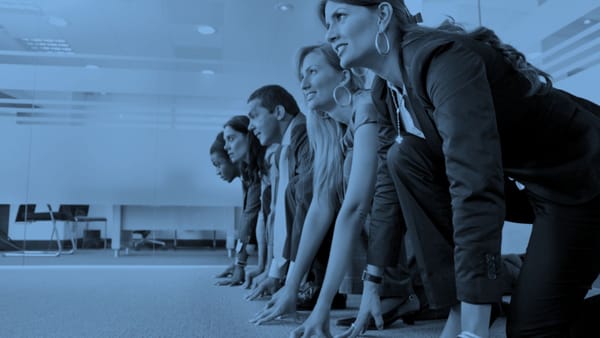Your future self will thank you
WorkLifePsychNews 003

Welcome to the November newsletter, where just in time for darker evenings and colder weather (at least in these parts), our focus turns to wellbeing.
Why wellbeing?
Wellbeing is one of the three main topics (along with productivity and interpersonal effectiveness) that I focus on as a psychologist. I find it fascinating and frustrating in equal measure.
It’s a difficult topic. We’re bombarded with confusing messages in the media, with seemingly contradictory advice and overly demanding restrictions on what we can do and what we can eat. In the workplace, wellbeing is often mentioned, but only acted on sporadically - when it’s time for a mental health week (or even day!) for example.
Wellbeing messaging in the media, on social channels and from the people in our own lives can leave us feeling guilty and ashamed. And that’s not exactly a great starting point for making positive changes.
Last month’s online community meet-up focused on making small investments in our wellbeing, and the recording of that session is available on worklifepsych.club. I wanted to share some of the key messages from this presentation, to give you a positive and accessible framework for working on your own wellbeing.
1. Wellbeing as an area of focus
I think the first important principle is to treat your wellbeing, not as a project that has a completion date, but as an ongoing area of focus in your life. Comparable to your finances, your family, your career…a theme that you don’t ignore, that has meaning to you, and gets your attention on a regular basis.
If we treat our wellbeing like a project, the temptation is to dive into unsustainable and restrictive routines like diets. Even if we work towards a positive-framed goal like running a competitive race, losing a set amount of weight, or attending a wellbeing-promoting course - the result is the same.
Attainment of the goal, and then what?
Our wellbeing - psychological and physical - benefits from ongoing focus and action, not just when we’re working towards a specific goal or when it’s time to mark a specific day.
No more than you’d check your bank balance once a year, it’s unhelpful to consider your wellbeing on a similarly infrequent basis.
2. Wellbeing as an everyday thing
It’s so easy to forget about our future selves and focus on the quick and easy in the present moment. This leads to the cultivation of unhelpful and unhealthy habits like longer working hours, skipping meals, and using food or alcohol as a coping strategies in the face of stress. But why?
Our attempts to be healthy are often sabotaged by ‘present bias’ and a focus on what feels good or rewarding now. “I’ll be healthier tomorrow…” right? Not what will pay off in the longer term.
Hal Hershfield explores this topic beautifully in his book ‘Your Future Self’. Research demonstrates that it’s easier to think of our future selves as a stranger, or someone who will magically sort out our problems for us.
“If we can treat those distant selves as if they are close others — people we care about, love, and want to support — then we can start making choices for them that appreciably improve our lives now and later.”
Building a focus on our wellbeing into accessible and painless everyday activities represents an investment in our future selves and not necessarily at the cost of our present happiness and enjoyment. This means the cultivation of small, health-promoting habits. Actions that take barely any time, but whose impact pays off over time.
Taking the stairs, rather than the escalator. Bringing a health(ier) homemade lunch to work. Regularly taking a break from the screen. Texting a close friend to check how they’re doing. Taking a moment to note what you’re grateful for. None of these require the effort of training for a marathon or the sacrifice of a restrictive fad diet. And all contribute positively to our physical and psychological health.
3. Principles, not rules, for wellbeing
I shared a set of simple principles for investing in your wellbeing at last month’s meet-up, and I’d like to repeat them here for you. Five C’s that you can incorporate into your everyday experience in a way that fits your unique circumstances. No need to copy that influencer or try to replicate that billionaire’s morning routine.
- Coping: challenges in life are inevitable, so cultivate a set of healthy responses to challenges and setbacks, and avoid over-relying on the unsustainable use of substances and avoidance of problems. Check out this video on coping strategies to learn more.
- Control: Focus on what you can actually control - this starts with your behaviour - rather than attempting to control the world and people around you. And ideally, focus on behaviour that is in line with your personal values, further contributing to your wellbeing.
- Compassion: cultivate compassion for yourself and for others, acknowledging your shared humanity and fallibility. You can learn more about compassion in this blog post.
- Connection: proactively connect and talk with others. This contributes to our sense of purpose and meaning and minimises the chance we’ll experience loneliness. You can find a selection of free resources on workplace loneliness - and how to beat it - on our ‘Connect and Thrive’ page.
- Consistency: look for consistency in your habits, not immediate results. Taking the stairs once won’t overturn years of sedentary life. But over time, it will contribute to impressive physical results.
Wellbeing in a nutshell
- Everyday habits can make a massive difference over time.
- Start small and work things up from there, tracking your consistency.
- Maintain a focus on your wellbeing as you would your bank balance.
- Keep in touch with your ‘future self’ when making decisions in the here and now.
In other news…
Procrastinating doctors!
🎧 Last month, I was interviewed on the ‘Doctors at Work’ podcast on the topic of procrastination. I really enjoyed my chat with the host, Mat Daniel, who is a surgeon and coach of other doctors and surgeons. You can have a listen here.
Meet the team
🎥 In the first of a new series of videos, I interviewed WorkLifePsych team member Dr. Rachael Skews. I’m keen for people to see beyond LinkedIn profiles and qualifications, and learn more about us and what we do. You can see my chat with Rachael here.
New habits
✅ Our November community meet-up is all about cultivating new habits. So if the above reflection on wellbeing interested you, you can join us on Wednesday 29th November to learn how to identify and build new and healthy habits. Sign up at WorkLifePsych.club and find all the details on the ‘Events’ menu.
How are we doing?
📋 We’re rapidly approaching the 150th episode of ‘My Pocket Psych’, our podcast about the psychology of the workplace. Whether you’re a longstanding listener (thank you!) or you’ve just stumbled across the podcast, I’d love to learn more about what you think. If you have five minutes to spare, please complete our listener survey. I plan to share insights and feedback as part of episode 150.
Incidentally, ‘My Pocket Psych’ is now automatically also published on YouTube. A surprisingly large number of people get their podcasts via YouTube (audio only), so I wanted to make this option available. You can find all our videos at worklifepsych.tv Like and subscribe, as the kids say!
This month’s recommendations
- Apple’s iOS 17 now includes a way to track your emotions over time. Potentially, this is an excellent way to build emotional literacy and spot trends and causal factors in your emotional life. It’s definitely better than relying on your fallible memory. Find out more in this article from Apple. I’m definitely going to return to this topic on the podcast in the coming months. Understanding why we’re feeling what we’re feeling can help us deal with challenging situations and minimise the chance of our behaviour being ‘hijacked’ by our emotions.
- I enjoyed this helpful reminder of the importance of regularly taking breaks and how even very short breaks can be beneficial. Read the full article from Emily Reynolds on the BPS website.
- Finally, I want to recommend Prof. Shane O’Mara’s excellent newsletter - the wonderfully titled ‘Brain Pizza’. Shane previously appeared on ‘My Pocket Psych’ to discuss his book about the health benefits of walking. He’s a really excellent and engaging writer.




